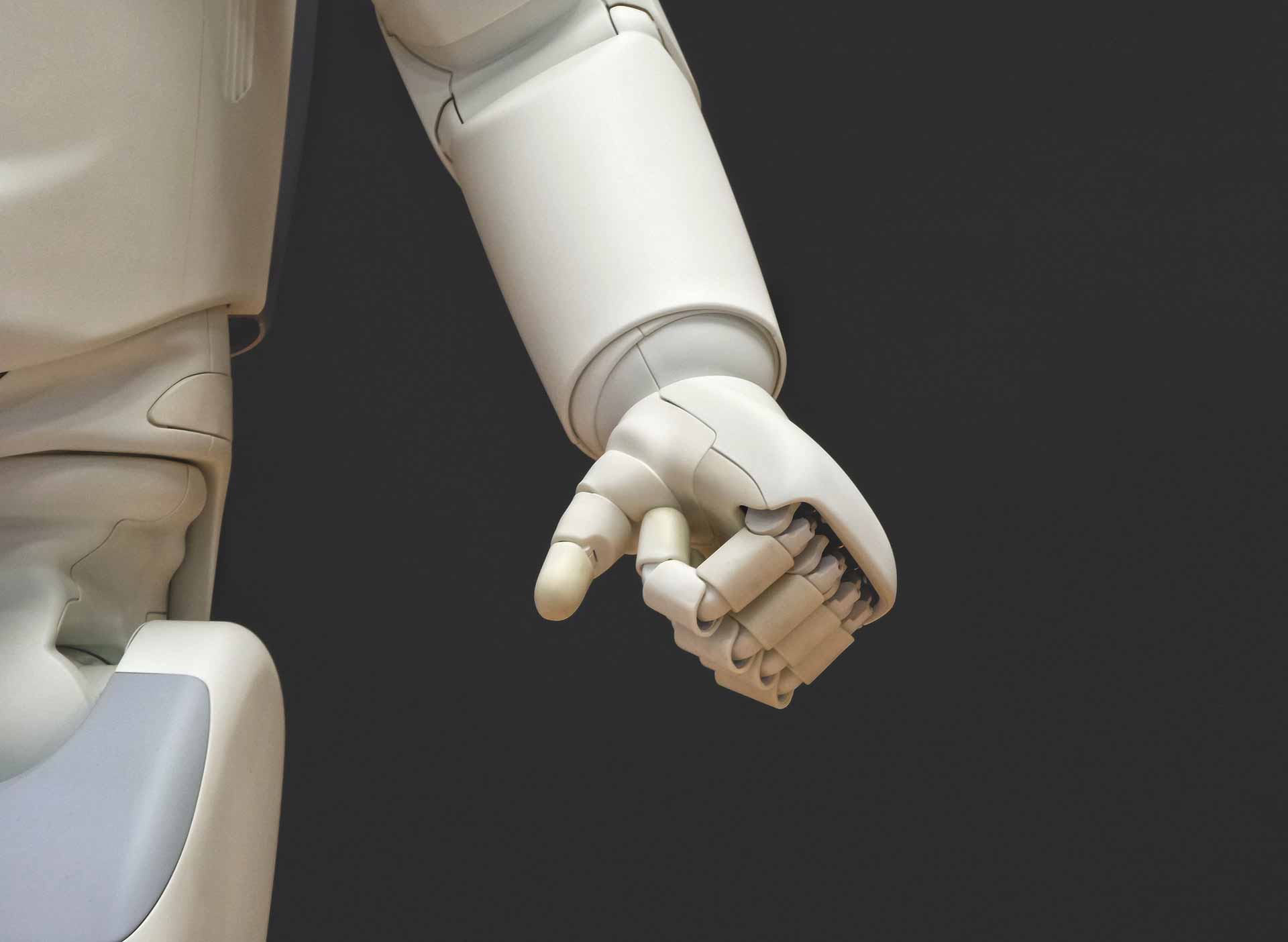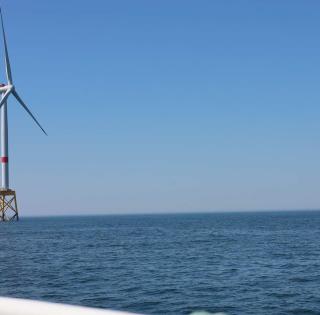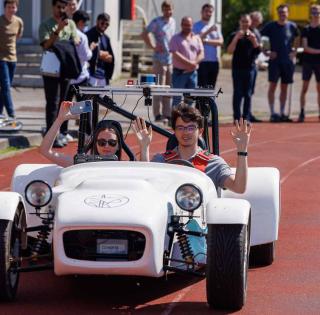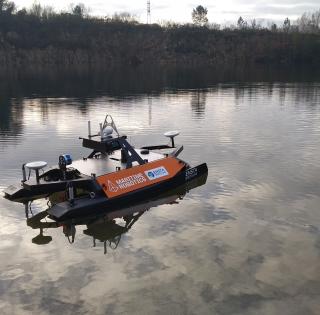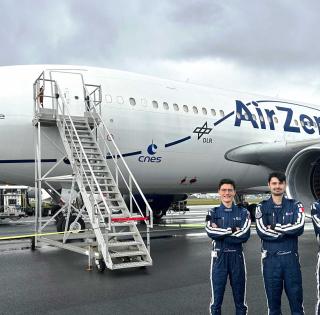
1- Why did you choose the engineering program at ENSTA Bretagne?
I heard about ENSTA Bretagne’s military curriculum when I was still in high school. It was a perfect match for my career aspirations as I wanted to be a military engineer. I was also drawn to new technologies, so I specialized to be able to enrol in the school as an IETA military engineer (by taking preparatory classes for the entrance exam at Pierre de Fermat high school in Toulouse in maths, physics and engineering science, then in maths and physics).
3- How did you get on settling in at the school in Brest?
After completing the initial army training year (dubbed "Year 0"), I settled in at the school no problem as I had already spent time together with the other military students. The town has everything you might need and because of its size, everything is within quick and easy reach. Unlike in big cities, journeys don’t take very long which is a huge time-saver.
4- Have you got involved in any clubs or associations? If so, in what way?
I got involved in the students’ common room and was a member of the team during the 2018-2019 year. I also took part in various sports clubs: basketball in my 1st year, boxing in my 2nd year and climbing in my 3rd year.
5- What have been the highlights of your years at ENSTA Bretagne?
Working at the students’ common room was one of the highlights of my 3 years spent at the school. This really is the beating heart of community life at ENSTA Bretagne. I met lots of people through that, and I was able to contribute to the sociable and friendly atmosphere on campus as well as help newcomers to settle in.
From an academic point of view, the most rewarding moments were to be had during my 3rd year. Through the wide array of projects, I learned to work really independently as part of a group.
The Guerlédan project was also one of the highlights of my training. Being able to go into the field, organize our work with complete independence and set our own goals was an undeniable advantage of the course. What’s more, students from different specialisms had to come together to work on this project (hydrographers and roboticists), and this meant we could add to our knowledge and our skill set.
6- What specialism have you chosen and why?
Because I am interested in new technologies and electronics, it made sense for me to pick the Robotics specialism. This field makes it possible to turn the virtual into reality: you build a physical system that you are going to operate via virtual development. In my eyes, it’s about the right balance between the imaginary and the real. Not only that, but the tech skills you learn on this course are truly versatile.
7- How did your end-of-studies internship go? What was the subject?
The subject of my end-of-studies project was: Production of an autonomous parachute. I did this at the STICC lab with the ENSTA Bretagne teams in partnership with the Defense Innovation Agency (AID), in response to a requirement of the forces. The internship went really well, as did the defense of my project.
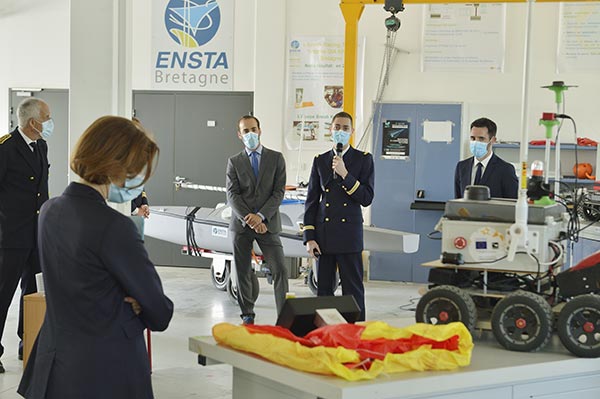
I was able to present my work to the Minister of the Armed Forces, Florence Parly, when she visited the school’s campus.
8- What are your future plans?
As an IETA military engineer, I already know my posting: “Evaluation - Specialist Engineer” at a technical center of the French Technology and Procurement Agency (DGA).
9-Do you have any advice for students hoping to enrol in the military engineering training program?
Maybe some advice for IETA military engineering students: make the most of the initial training (Year 0), bearing in mind that this is like a gap year from your training. Some people find it hard to resume their studies afterwards. Don’t forget that you have to go back to being a student after this special year.






